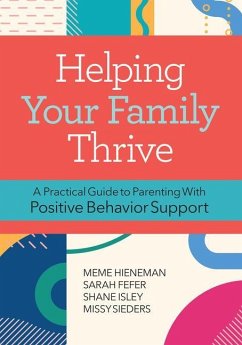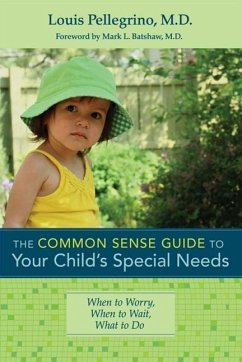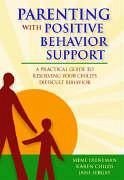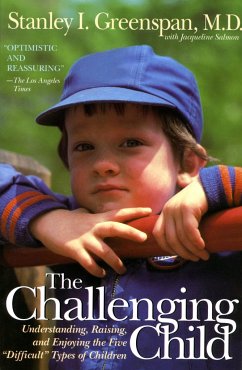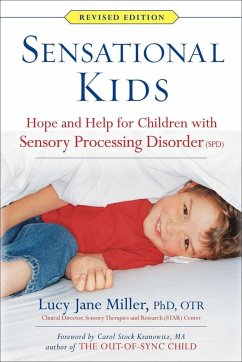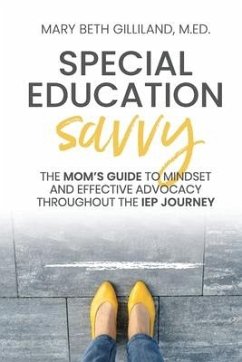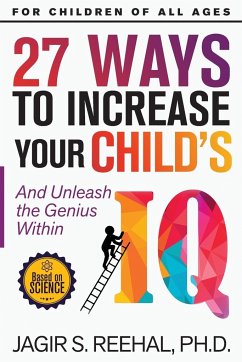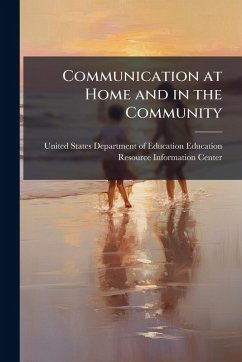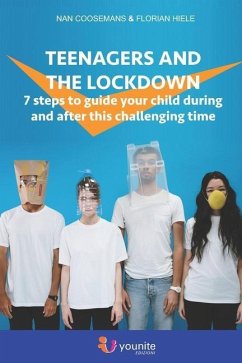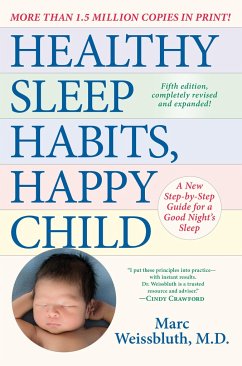Resolving Your Child's Challenging Behavior
A Practical Guide to Parenting with Positive Behavior Support
Versandkostenfrei!
Versandfertig in über 4 Wochen

PAYBACK Punkte
14 °P sammeln!




This practical guide teaches parents to use positive behavior support (PBS) to address a child's challenging behavior. It helps parents identify the reasons underlying the behavior and intervene through a three-pronged approach: 1) preventing problems, 2) replacing challenging behaviors, and 3) managing consequences. Concrete, research-based examples, exercises, downloadable worksheets, and chapter-long case studies walk parents through every step of the process.
Meme was a consultant, researcher, educator, and advocate working with organizations that support children with significant behavioral challenges and providing information and resources through teaching and nonprofit work. She was married for over 30 years and had two young adult sons. Meme held a Ph.D. in Special Education and was certified as a behavior analyst. She published a variety of articles, chapters, and three books. She developed a comprehensive video and training package on PBS for parents of children with autism and other developmental disabilities and was a regular contributor to Parenting Special Needs Magazine. Meme worked with children with severe behavioral challenges and their families for over 30 years. She was a residential program manager, behavior specialist for a school district, staff member for a program assisting families and professionals of children with autism, adjunct instructor at USF, director of a state-wide PBS project helping schools to implement proactive, evidence-based interventions, co-training coordinator for the National Research and Training Center on PBS, research director of the Positive Family Intervention Project at USF, director and developer of the ABA and autism programs at All Childrenâ (TM)s Hospital, and Co-Principal Investigator of a National Institute on Health-research study focused on behavioral parent education. She taught Mastersâ (TM) level courses in applied behavior analysis, consulted with agencies that provide family-focused behavioral support, and lead a nonprofit organization called the Home and Community Positive Behavior Support Network (https: //hcpbs.org/). Karen is the mother of two children, both married and beginning their own adventures in parenting. Karen is enjoying her new role as grandparent and looks forward to being part of this ever-expanding family group. Karenâ (TM)s professional career has evolved to focus on the development, use, and evaluation of schoolwide PBIS systems. Throughout her career, Karen seeks opportunities to help teachers and families address challenging behavior. Outside of work, Karen enjoys supporting others in need including family, friends, and brightening the lives of sick and elderly with her therapy dog. Karenâ (TM)s professional experiences include teaching students labeled as severely emotionally disturbed, conducting research on PBS for children with challenging behavior, coordinating state centers on parent involvement, training educators to implement positive behavior support in schools both at the schoolwide level and with individual students. Karen looks forward to helping others through sharing the valuable knowledge and lessons learned professionally and in her most important role, as a parent. Jane Sergay has raised three daughters in partnership with her husband Stephen, a neurologist in Tampa. She feels that her greatest joy and most fulfilling work has been parenting her happy, thoughtful, and capable daughters: Amanda who is a medical resident in dermatology, Rebecca who is a second year law student, and Samantha who is about to start her freshman year in college. While raising her children, Jane developed a parenting education program, and for the last 20 years has been teaching seminars, workshops and individual sessions focused on positive and effective parenting skills. Until recently, she was a faculty member at the University of South Florida, directing programs that emphasize parent involvement in the schools and parent teacher partnerships. She looks forward to working part-time for the Hillsborough County School System in the Department of Family Literacy this fall. Jane's professional work has consistently centered on enhancing the well being of children and their parents. While working in Boston, Jane helped design a model program and taught preschool in an educationally integrated classroom. She continued her work guiding parents in teaching basic skills to children with exceptional needs, researching qualities of good parenting, and teaching classes in child development at the university level. She earned an undergraduate degree in Speech Pathology and Audiology from Boston University and an M.Ed. in human development from the Harvard Graduate School of Education. Glen Dunlap, Ph.D., has been involved with individuals with disabilities for more than 45 years and has served as a teacher, administrator, researcher, and university faculty member. He has directed numerous research and training projects and has been awarded dozens of federal and state grants to pursue this work. He has authored more than 250 articles and book chapters, coÂ-edited numerous books, and served on 15 editorial boards. He was one of the founders of the Association for Positive Behavior Support, and served terms as treasurer and president of that organization. He is also the lead author on each of the books in the PTR series. Dr. Dunlap was a founding editor of the Journal of Positive Behavior Interventions and served for 10 years as the editor of Topics in Early Childhood Special Education. Dr. Dunlap lives in Reno, NV and is affiliated with the University of Nevada, Reno.
Produktdetails
- Verlag: Brookes Publishing Company
- 2nd Second Edition, New edition
- Seitenzahl: 224
- Erscheinungstermin: 17. März 2022
- Englisch
- Abmessung: 251mm x 175mm x 15mm
- Gewicht: 412g
- ISBN-13: 9781681255644
- ISBN-10: 1681255642
- Artikelnr.: 62813080
Herstellerkennzeichnung
Libri GmbH
Europaallee 1
36244 Bad Hersfeld
gpsr@libri.de
Für dieses Produkt wurde noch keine Bewertung abgegeben. Wir würden uns sehr freuen, wenn du die erste Bewertung schreibst!
Eine Bewertung schreiben
Eine Bewertung schreiben
Andere Kunden interessierten sich für




